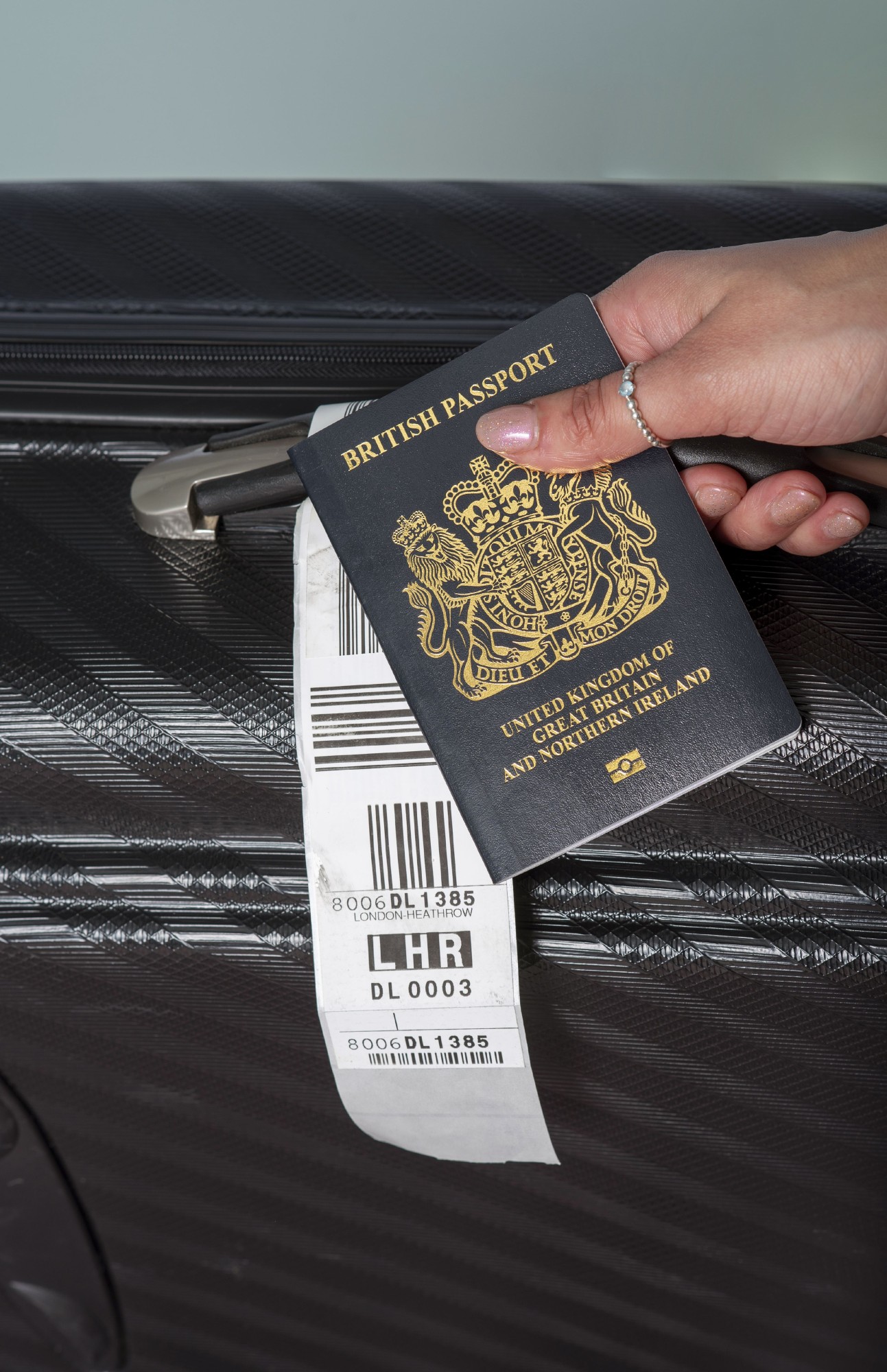
Important information
Tax treatment depends on your individual circumstances and may be subject to future change.
If you are married or in a civil partnership where one partner earns less than £12,570 a year and the other is a basic rate taxpayer, you may be able to share your personal tax allowances. This is known as the marriage allowance.
Despite 4.2 million couples being eligible for the tax break, only 1.8 million are claiming this benefit worth £252 a year. It can also be backdated up to four tax years, meaning that couples could be losing out on £1,256.
In this guide we explain:
- What is the marriage tax allowance and how does it work?
- Am I eligible for marriage tax allowance?
- How much can I claim in marriage tax allowance?
- Can I backdate the marriage tax allowance?
- How do you apply for marriage tax allowance?
What is the marriage tax allowance?
Firstly, you are able to earn £12,570 a year before you start paying income tax. This is called the personal allowance.
If you are married or in a civil partnership, under the marriage allowance, you can transfer up to £1,260 of your personal tax allowance to your spouse or civil partner – if you both meet certain earnings criteria.
This reduces the amount of income tax you will pay by up to £252 a year.
How does marriage allowance work?
If you are a non-taxpayer, i.e. you earn under the personal allowance, and your spouse or civil partner is a basic-rate taxpayer, you can transfer up to 10% or £1,260 of your personal allowance to them.
Your partner can therefore earn £12,570 + £1,260 = £13,830 before paying income tax. This will save up to £252 a year.
Both of you must also have been born on or after April 6, 1935.
In addition to claiming for this tax year, you can also backdate your claim for up to four previous tax years. This means a potential tax break of up to £1,242.
Find out more about the tax benefits of being married here.
Example 1:
You earn £10,000 a year and your spouse earns £25,000. As you earn less than the personal allowance of £12,570, you are a non-taxpayer.
You can give £1,260 of your personal allowance to your spouse, lowering the amount you can earn tax-free to £11,310.
As you still earn below that new threshold, you still remain a non-taxpayer.
Before the transfer, your spouse’s annual tax bill would have been calculated as £25,000 minus the £12,570 personal allowance, taking their taxable income to £12,430.
Taxed at the 20% basic rate, that’s a bill of £2,486.
But thanks to your gift, their personal allowance has been boosted to £13,830. That means they only pay basic-rate tax on £11,170, giving a tax bill of £2,234 and an annual saving of £252.
Example 2:
You earn £11,770 and your spouse earns £25,000.
Although you currently earn less than your personal allowance, by transferring £1,260, you lower the amount you can earn tax-free to £11,310 and have to pay tax on £460.
At 20% tax, you will owe £92. However, your partner will save £252. A saving of £160 in total.
Read more: ‘Can we still get a mortgage if my partner has bad credit?’
Who is entitled to the marriage allowance?
Firstly you must be married or in a civil partnership to be eligible for the marriage allowance. It isn’t enough to just be living together.
Eligibility also relies on one partner earning less than the personal tax allowance of £12,570 a year.
The other half must be a basic-rate taxpayer earning below £50,270 a year (or £43,662 in Scotland).
How much marriage allowance can I claim?
In the current tax year, which runs from 6 April 2023 to 5 April 2024, the annual marriage tax allowance is £252. This is the same amount as the previous tax year, because the personal tax allowance has also been frozen.
Can I claim marriage allowance for previous years?
If you have only just heard of the tax break, don’t worry. Eligible couples can backdate their claim by up to four years to net a tidy sum of more than £1,200.
Here’s a breakdown of the maximum amount you can claim for the current and past four years’ marriage tax allowances:
- 2023/24 – £252
- 2022/23 – £252
- 2021/22 – £252
- 2020/21 – £250
- 2019/20 – £250
By backdating your claim for four years, and including the current tax year, you will receive £1,256, the sum of the figures above.
How to apply for the marriage allowance
If you want to apply for the marriage allowance, the person who earns the least should make the claim.
Before you head to the relevant government website to start your marriage allowance claim, you will need some personal information to hand.
You must have:
- You and your partner’s national insurance number
- Proof of ID, which can be any two of the following:
- your P60
- a payslip dated within the past three months
- passport details
- information that can be found on your credit file
- details from your self-assessment tax return
You will be taken through a series of eligibility questions. Once they are completed, you will be asked to sign into the government gateway website.
For this, you will need a user identification number and password. If you have not used the gateway site before, it’s quick and easy to generate sign-in details.
Once you are signed in, you will be taken through a simple application process and be given the option to backdate your claim.
Remember, you can only claim marriage allowance for previous years if you met the eligibility criteria in that year. So you will not be eligible to backdate the relief if you have just got married.
You will receive an email within 24 hours confirming your application.
If you don’t have access to the internet, you can claim through the self-assessment process if you are registered and complete your own tax returns.
You can also phone 0300 200 3300 to make an application, or you can write to: Pay as you Earn and Self-Assessment, HM Revenue & Customs, BX9 1AS.
You don’t need to make repeat claims. After signing up to transfer your personal allowance, your partner will receive the tax perk automatically each year.
Read more: Inheritance tax on gifts: £3,000 rule and more exemptions explained
How is the marriage allowance paid?
Marriage allowance is a tax relief and isn’t a benefit that is paid into your bank account, like working tax credit, for example.
The higher earner’s tax code usually changes to M, to show they are receiving marriage allowance. If the person transferring their allowance is employed, their tax code changes to N.
If you are claiming for backdated allowances, you will get a payout either in the form of cheque or a BACS transfer.
How long does the marriage allowance take to come through?
Marriage allowance is a tax relief that involves a change in tax codes – a process that takes about two months.
When should you cancel marriage allowance?
To cancel the marriage allowance, you must notify authorities if your circumstances change.
This includes:
- If you get divorced or legally separated
- If your income rises and you are no longer eligible
- You no longer want to receive the tax benefit
Could I end up paying more tax?
If you are employed and earning more than £11,310, and you give away the maximum amount of personal allowance, £1,260, you will pay slightly more tax.
But the higher earner will receive a bigger tax reduction, so as a couple you will pay less tax.
Can I lose out just by applying for the marriage allowance?
No, you have nothing to lose by checking your eligibility.
How do I cancel my marriage allowance?
Call HMRC on 0300 200 3300 or cancel your claim online. It will be cancelled automatically if you get divorced or die.
Can self-employed people claim the marriage allowance?
Yes, if you are a basic-rate taxpayers. The rebate is processed when your tax return is filed.
Read more: Is a joint savings account a good idea?
Important information
Some of the products promoted are from our affiliate partners from whom we receive compensation. While we aim to feature some of the best products available, we cannot review every product on the market.


